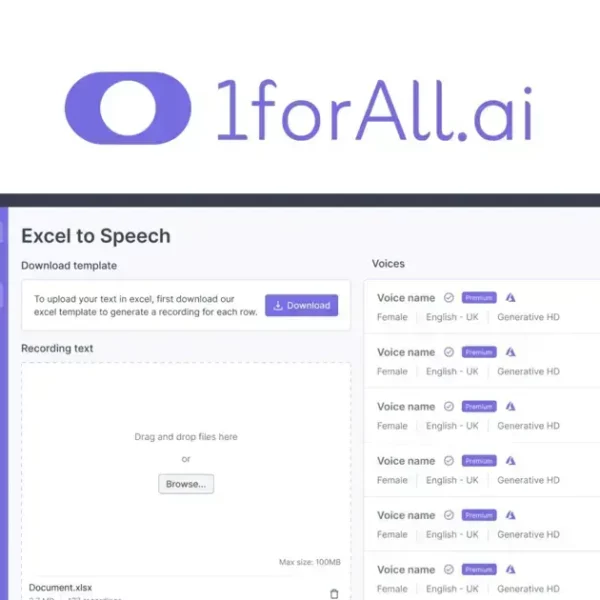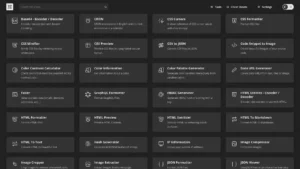The best free CRM software helps businesses manage customer relationships efficiently by providing essential features like contact management, sales tracking, and integrations. Key factors to consider when choosing include usability, customer support, and scalability to meet future needs.
Best free CRM software can transform the way your business manages customer relationships. In today’s competitive marketplace, selecting the right tools is crucial to maintain efficiency and connection with clients. This article explores the leading free CRM options available today, their standout features, and practical tips on how to choose the best solution for your needs.
Top Free CRM Software Available Today
The digital landscape offers a plethora of options when it comes to top free CRM software available today. Each of these tools presents unique features tailored to different business needs. It’s essential to understand what makes each software option stand out and how they can effectively support your business operations.
1. HubSpot CRM
HubSpot CRM is widely recognized for its user-friendly interface and robust features. It includes tools for email tracking, contact management, and integration with various applications, making it an ideal choice for small businesses looking to streamline their customer relationship processes.
2. Zoho CRM
Zoho CRM offers a comprehensive solution that includes lead management, sales automation, and analytics. With a strong focus on customization, Zoho allows businesses to tailor their workflows and processes, improving efficiency and productivity.
3. Freshsales
Freshsales stands out with its intuitive design and powerful automation features. It includes AI-driven insights, allowing you to prioritize leads and tailor your communication. This makes it suitable for businesses that seek to enhance their sales strategies.
4. Bitrix24
Bitrix24 combines CRM functionalities with project management tools, creating an all-in-one solution. It supports collaboration and team communication, which can be especially beneficial for remote teams.
5. Agile CRM
Agile CRM focuses on providing a user-friendly experience with features like marketing automation, web engagement, and sales tracking. Its simplicity makes it easy for small business owners to manage customer relationships without feeling overwhelmed.
Choosing the right free CRM software requires evaluating your business needs and understanding which features will be most beneficial. Each of these platforms can help enhance your customer relationships and streamline your sales processes, making them invaluable tools for any growing business.
Key Features to Look for in Free CRM Software

When searching for the best free CRM software, it is important to know the key features that set these tools apart. Understanding these features can help you select a CRM system that meets your business needs and enhances customer relationship management.
1. Contact Management
A robust contact management system is essential. Look for CRM software that allows you to store all customer information in one place, including contact details, interaction history, and notes. This helps in maintaining a comprehensive view of each customer.
2. Sales Tracking
Effective sales tracking features enable businesses to monitor leads, deals, and sales performance. Choose software that provides visual sales funnels and reporting tools to understand sales trends and predict future performance.
3. Automation Capabilities
Automation features can significantly improve efficiency. Look for CRMs that automate everyday tasks, such as sending follow-up emails or updating records, which saves time and reduces manual errors.
4. Integration Options
The ability to integrate with other tools is a key feature. Ensure your chosen CRM can connect with applications like email marketing platforms, accounting software, and project management tools to streamline processes across your business.
5. User-Friendly Interface
A user-friendly interface is crucial for adoption. The software should be easy to navigate for all team members, regardless of their tech proficiency. A simple and intuitive design encourages consistent usage and helps in training new employees quickly.
By focusing on these key features, you can find a free CRM solution that helps your business improve customer relationships and enhance overall productivity. Prioritizing these elements ensures you select software that aligns with your operational needs.
User Reviews: Experiences with Free CRM Options
User reviews play a vital role in understanding the effectiveness of free CRM options. By examining experiences shared by real users, businesses can gain insights into the strengths and weaknesses of various CRM systems.
Positive Experiences
Many users report that free CRM software can significantly enhance their workflow. Users appreciate features like contact management and sales tracking, which allow them to keep all necessary customer information organized. Some CRM options offer intuitive dashboards that make it easy to visualize sales pipelines, leading to better decision-making.
Challenges Faced
While many users find these tools helpful, challenges do arise. Some reviews mention limits on users or features compared to paid versions. Users may experience frustration when needing additional functionalities that require paid upgrades. Additionally, some free CRMs may have limited customer support, leaving users to troubleshoot issues independently.
Specific Feedback
For example, HubSpot CRM users frequently highlight its ease of use and integration capabilities. However, reviews may point out that advanced reporting features are not as robust in the free version. On the other hand, Zoho CRM is praised for its customization options but may overwhelm new users due to its complexity.
Overall Satisfaction
Most users express overall satisfaction with the free CRM tools, especially for small businesses or startups with tight budgets. Users recommend taking time to explore different options and reading reviews before making a choice. Many suggest starting with a few key features and gradually expanding use as the business grows.
In conclusion, tapping into user reviews offers valuable perspectives for anyone exploring free CRM solutions. These experiences can guide you in selecting a platform that truly fits your needs and helps improve customer management.
Comparing Free CRM Software to Paid Versions

When exploring CRM software, it is essential to compare free versions to their paid counterparts. While free CRMs can provide valuable features, understanding the differences can help businesses make informed decisions.
Features Comparison
Free CRM software typically includes basic functionalities like contact management, lead tracking, and task management. However, paid versions often unlock advanced features such as detailed analytics, workflow automation, and customizable reporting.
Storage and User Limits
Most free CRM tools impose limits on the number of users or the amount of data you can store. Paid plans usually offer increased capacity and allow more users to access the platform. This is significant for growing businesses that need to accommodate a larger team.
Customer Support
Customer support options often differ between free and paid versions. Free CRMs usually offer limited support, often relying on online resources and community forums for assistance. In contrast, paid CRMs often provide dedicated customer support, helping businesses resolve issues quickly and efficiently.
Integration Capabilities
Integration with other software is crucial for seamless business operations. Free CRMs might offer limited integration options, while paid versions often provide a wide range of integration possibilities with marketing tools, accounting software, and other business applications.
Scalability
As a business grows, its needs change. Free CRMs can be a great starting point, but they may not scale effectively. Paid versions are designed to grow with a business, offering flexible plans that accommodate increasing demands and additional features as needed.
In summary, while free CRM options can be beneficial, businesses should weigh the advantages of paid software to determine the best fit for their long-term goals and needs.
How to Choose the Best Free CRM Software for Your Business
Choosing the best free CRM software for your business can be a challenging task, but understanding your needs and the available options can simplify the process. Here are key steps to help you make an informed decision.
1. Identify Your Business Needs
Start by assessing what features are most important for your business. Do you need simple contact management, or are advanced features like automated emails and sales tracking necessary? Recognizing your priorities will guide your selection.
2. Evaluate Usability
The software’s ease of use is crucial, especially for small teams. Look for a CRM that has a user-friendly interface and requires minimal training. A complex system can hinder productivity and frustrate users.
3. Research Available Options
Take time to research different free CRM options. Read user reviews and compare features. Websites that aggregate software reviews can provide valuable insights into the pros and cons of each CRM solution.
4. Test with Trial Versions
Many CRMs offer free trials of their software. Take advantage of these trials to test the functionality and see if it fits your workflow. Engaging with the CRM first-hand allows you to assess its capabilities and limitations.
5. Consider Future Needs
As your business grows, your CRM needs may change. Choose a CRM that can scale with your business, providing options to upgrade to paid plans if necessary. Look for a solution that retains core functionalities while adding advanced features over time.
By following these steps, you can select a CRM that not only fits your current requirements but also adapts to your business’s future growth.
In Summary: Choosing the Right CRM Software
Selecting the best free CRM software is a key decision for your business. By understanding your unique needs and exploring your options, you can find a CRM that enhances your customer relationships and boosts efficiency.
Evaluating usability, researching features, and testing with trial versions will help ensure you make a well-informed choice. Additionally, considering the potential for growth will guide you in selecting software that supports your business both now and in the future.
With the right CRM in place, you can streamline processes and focus on what matters most: building strong relationships with your customers.
FAQ – Frequently Asked Questions about Free CRM Software
What is the purpose of a CRM system?
A CRM system helps businesses manage customer relationships, streamline communication, and improve sales processes by organizing customer data.
How can free CRM software benefit my business?
Free CRM software can help small businesses save costs while providing essential features for contact management, lead tracking, and more.
What should I look for in free CRM software?
Look for features like usability, integration options, customer support, and the ability to scale as your business grows.
Are there any limitations to using free CRM software?
Yes, free CRM software often has limits on users, features, and customer support compared to paid versions.
Can I upgrade from free CRM software to a paid version later?
Most free CRM software provides options to upgrade to paid versions, allowing access to more advanced features as your business needs grow.
How can I test different CRM software options?
Many CRM providers offer free trials, allowing you to test their software’s features and usability before making a commitment.




